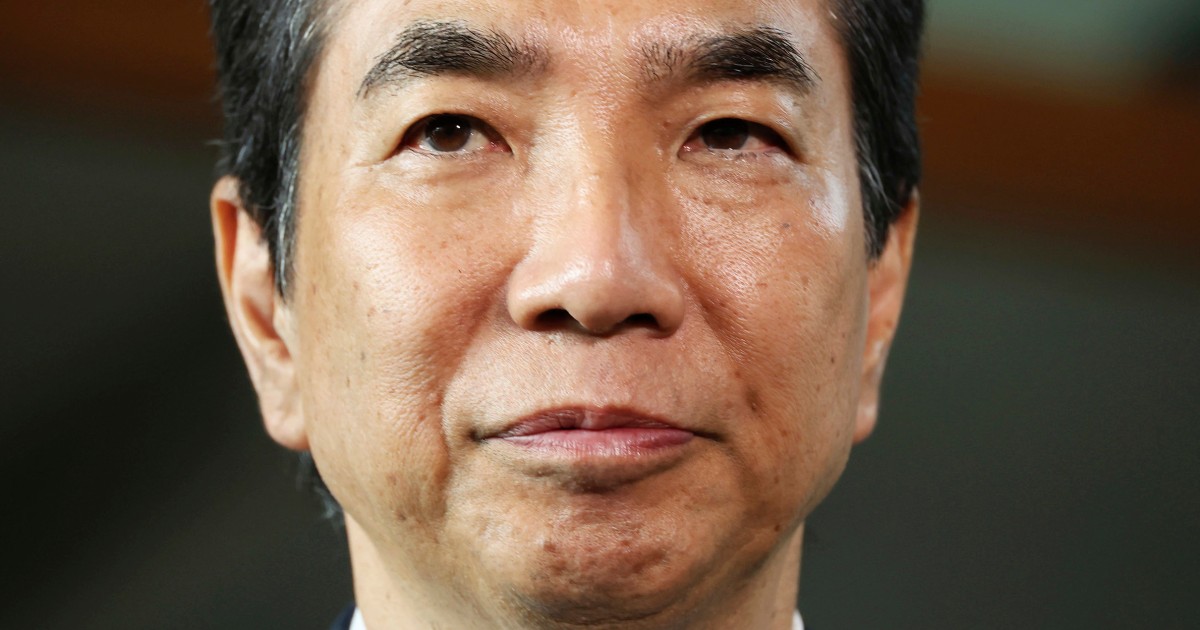Japanese farm minister, Taku Eto’o, resigned on Wednesday, Local media reportedAfter the general anger about his comments on obtaining free rice.
Eto’o said on Sunday that he had never had to buy rice because he received large sums of grains as gifts from supporters – a suspension that hit a nerve with the local population who struggle with missile prices of the beloved basic element.
Japan is struggling with rice prices for several months with stormy weather and the long country’s policy to protect local farmers’ interests.
The resignation of Taku comes at a time when the government of Prime Minister Shigro Eshiba was struggling with low approval classifications before holding the House of Representatives elections this summer and the continuous tariff negotiations with the American NHK world that former Environment Minister Kwaisumi Shingero Eto will succeed.
The Cabinet approval classification in Ishiba has decreased to The lowest level ever of 27.4 %With the increasing discontent of the voters due to the failure of the administration to address the high prices of rice and the rejection of the tax reductions of consumption in response to the high inflation, according to the Newdo News poll on Sunday.
While the Ministry of Agriculture in Japan is trying to limit the high prices through the issuance Government stocksThis step had no significant effect on braking in prices.
Rice prices in about 1000 supermarkets According to what was stated throughout the country, the highest level ever in the week ending May 11. The prices of a rice bag rose 5 kg of rice 54 yin a week to 4,268 yen ($ 29.63).
“After the decrease in rice in Japan and the high prices in the summer of 2024, the prices continued to rise, despite the arrival of new local crops and records”, “the US Department of Agriculture He said in the March report.
Friedrich Newman, the chief economist in Asia, said that the rise in rice prices reflects the continuous effects of the harvest last year, while supporting local rice consumption by an overwhelming majority of local production instead of imports.
Siuri Sherrai, professor of economics at the University of Qiu University, who added that the number of farmers is falling with the elderly population, said that the meteorology on the issue of the display side is the fact that rice in Japan is mostly produced by the elderly who run a small farmer, so they are not very effective.
She said, “Japanese is like Japanese rice. They do not really like foreign rice.”
The rice economy in Japan is still somewhat isolated from the global market Harsh duties on imported rice It aims to protect rice farmers.
What made the clay worse, the demand for Japanese rice increased on its back High tourist fallNote the professor.
Takoji Okopo, chief economist at the Risk Forum in Japan, said the sharp increase in rice prices is partially due to the shift moved by panic by both families and companies.
While some Retail dealers announced plans to import riceHe told CNBC that it is uncommon with rice imported between consumers and companies that are unlikely to reduce such imports from the request for the offer request.
Japan’s inflation 3.6 % increased yearly in March. Although the number was less than 3.7 % seen in February, it still represents three consecutive years that the main inflation number remained over the goal of Japan by 2 %.
“This is very high compared to the United States or Europe.”
“This is why many consumers are very angry,” Sheri said.
In addition, the cheap yen makes food imports expensive.
Japan It imports about 60 % of the food suppliesAccording to food sources and TIDEGE axis data. The country has 38 % food self -sufficiency rateCompared with The government’s goal is 45 % by the fiscal year 2030.


